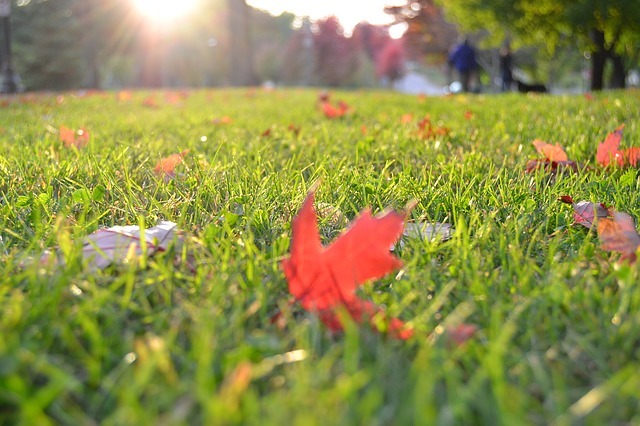
Trashing out these leaves isn’t the best idea at all. While most people trash them because they consider it useless, others do because they don’t have the space to convert it to compost.
In this short but concise piece, we intend to achieve three things.
- Point out that you don’t need all the space in the world to compost leaves.
- Highlight the process of composting leaves in plastic bags.
- Highlight steps you can take to make the composting process a lot faster.
Composting can take place in a plastic bag, in a compost pile, or a composter. We talked about composters and what not to compost in previous articles.
This simply implies that composting can take place anywhere. You really do not need a large space to compost items. For homeowners who don’t want an open compost pile or don’t want to spend a few hundred bucks on a composter, composting in a plastic bag can be a great alternative.
You can shred the leaves or add them to the bag unshredded. It’s a lot easier composting shredded leaves than unshredded ones. Unshredded leaves take time to break down, but the shredded leaves break down quickly.
Contents
So how do you compost leaves in a plastic bag?
- When the leaves are all packed in a plastic bag, add about a half cup of nitrogen fertilizer or manure. This addition helps in providing nitrogen microbes that carry out the breakdown process.
- Also, add two shovels of garden soil to give the microbes needed soil for the breakdown.
- Lastly, add about one or two-quarters of clean water to each bag. This is because the microbes would need water for decomposing the leaves.
Like grow bags, you can use any container for composting your leaves. The problem with using containers is that in the absence of a lid, the leaves will litter everywhere, and you’ll restart the process of blowing the leaves together again.
Fallen tree leaves sometimes take longer to decompose, especially when you compost them without any supplement. That’s why it’s advisable to add manure to facilitate the breakdown process of these leaves.
Quick Tip: Recommended Methods For Composting Leaves In Plastic Bags
Without perforating holes on the plastic bags, they’ll become airtight. The absence of air might slow down the decomposition process.
To get a better result, don’t just pack the leaves into a bag and keep them. We recommend poking holes into each plastic bag. The holes will give room for airflow. It will also serve as a proper drainage channel and route for decomposing organisms to get in and out of the bag, especially when the plastic bags will have direct contact with the soil.
Don’t forget to stir up the leaves.
- How to Get Potatoes to Sprout Eyes: Detailed Growing Guide with 3 Options - July 31, 2023
- Weight of a Medium Potato: Revealed in Detailed Guide - July 29, 2023
- Maris Piper Potatoes: 9 Substitutes You Should Know About - July 27, 2023
Hello! I’m Jessica Zander, a garden coach and consultant based in the Boston area (zone 6b), offering virtual consultations across the country and Canada.
I’ve been passionate about gardening since the early 1990s, and in 2022, I launched You Can Do It Gardening to empower individuals to feel more confident in their gardening endeavors.
Following a 30-year career in nonprofit finance and operations, I transitioned out of that field in mid-June of 2023 due to the growing demand for coaching services. Interestingly, my years of presenting financial statements to boards and finance committees proved to be valuable experience for teaching people about gardening! I enjoy sharing skills, providing guidance and suggestions, and collaborating efficiently with clients to make significant improvements to their outdoor spaces, both small and large. I also regularly teach at the Arlington Continuing Education and Cambridge Adult Education.
My approach is direct and practical, akin to Mary Poppins, but tailored to your garden. Clients find satisfaction in saving money and taking pride in their own gardening achievements.

Very valuable information! Will you please qualify what measure you’re using when you say “one or two-quarters of clean water”?
Thank you!
Half a liter at a time, depending on the size of the compost. Thank you Audrey.